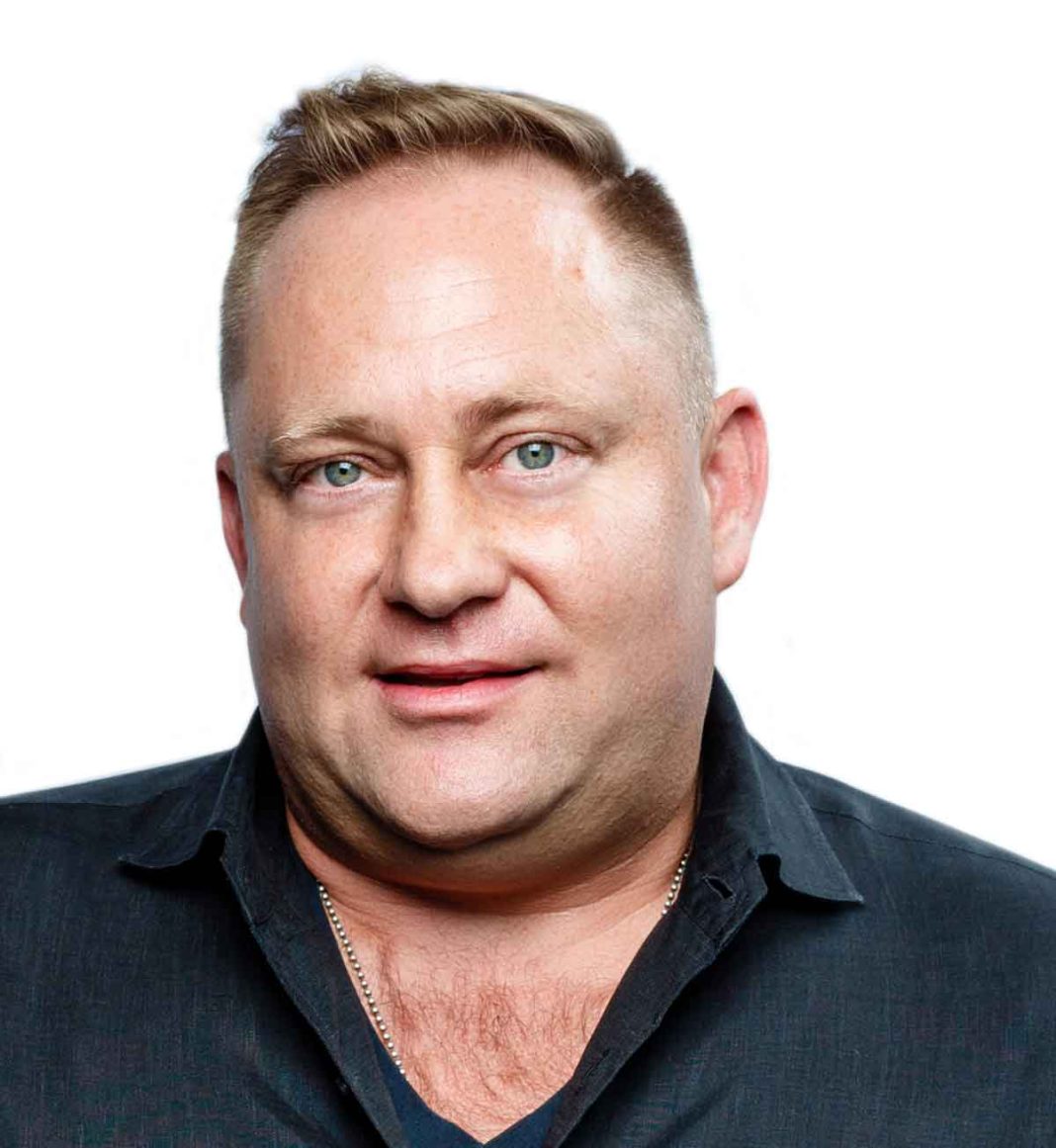With more than 20 years of Middle East industry experience, working with some of the biggest stars in the music and entertainment business, Thomas Ovesen is more qualified than most when it comes to deciding what will sell in the region. After a stint in Saudi Arabia working with the Diriyah Gate Development Authority, Ovesen marked his return to Dubai with a sell-out show from 50 Cent at Coca-Cola Arena.
With the events season now in full swing, the T.O.P Entertainment Founder took some time out from his busy schedule to sit down with TPMEA. Here, he discusses everything from his motivation for launching the new company, to venue selection, how he deals with competition and his plans for the future.
What was the motivation behind launching T.O.P Entertainment?
I had a wonderful time working on the Diriyah Gate project; we wrote some great strategy and had fantastic plans, but the booking of the content and live events promotions was still quite a distance down the road, and I had done what was initially asked of me. So, with the blessing of the project’s CEO, I decided last summer to plan for a return to Dubai in 2022.
We launched T.O.P Entertainment in mid-April, as an independent company instead of having a local corporate or individual underwriting the business as I have in the past. Our initial plan to get back into the market was to team up with European promoter All Things Live to put on Justin Bieber in Dubai, which sold out two nights at Coca-Cola Arena before the artist unfortunately had to cancel. We’ve since in partnership with the building put on 50 Cent, who sold out the Coca-Cola Arena and put on a fantastic show. We’re now building on that success and promoting across the region, with plans to be active in many territories throughout the Middle East.
How much of a blow was the cancellation of the Justin Bieber shows?
The huge disappointment was that the shows were completely sold out, so we had 26,000 ticketholders who would have had a fantastic night and unfortunately, we weren’t able to provide it for them this time. The upside is that when Justin decides that he is ready to come back and can commit again to two shows on his tour, we already know that there’s a fanbase here ready and waiting to buy tickets again. I have no assurances of when or if that will happen, but I’m sure that if he is ready to play Dubai, I will get the call and we will put it on.
What kind of events are you looking to target?
I’m not tied in with any specific media companies or owners that have specific venues as I have been in the past, so in principle I can sell and promote anything that people want to buy a ticket to. We’ll be looking to take on a spectrum of events, from family entertainment to touring artists, which is where my main passion lies. Each market has its own set of established market players and its own potential. So, in some markets I will most likely team up with other organisations, in others I will offer my services to produce or programme or both, and in some markets where I feel I can add something to the mix, I will compete.
I will take each market and each opportunity on its own merits. In the UAE for example, I will be taking risks on my shows, doing my own promotions from A to Z. Eventually, there will be some other markets where it will make sense to have boots on the ground. Saudi is an example of a market that will really appreciate the passing of knowledge and engagement on a grassroots level when it comes to our organisation.
How has the emergence of Saudi Arabia as an event-hosting nation changed the potential for touring the Middle East?
Everyone in this market looking at tours will see the opportunities in Saudi Arabia. We might have lost Lebanon as a tour stop for the time being, but now Saudi can offer two, three or perhaps even more stops on a tour. Three to five shows on a regional tour is not beyond the realms of possibility for the right act.
How do you go about selecting venues?
I won’t succumb to being the lazy promoter who puts on all his shows in the same venue. There are some acts that are too big for arenas – Justin Bieber would have been one of them if he was only available for one night. Some shows sit better in an open-air venue. There are event IPs that are built around being held outside, which brings benefits of being able to control everything, including all revenue. streams.
That said, Coca-Cola Arena is the venue that we have been dreaming of for years. Before it existed, whenever we thought about the main challenges for our business, the lack of purpose-built venues would always come up. So, now we have one in Dubai, as well as the Etihad Arena in Abu Dhabi, it would be amiss for me as a promoter if I didn’t support those projects wholeheartedly.
I still have a lot to learn with regards to making the most of operating in these buildings, but they provide such a great opportunity for my business. They also provide smaller promoters an opportunity to get into the business, who may previously have been put off by the idea of having to invest millions of dirhams and lots of resources into putting a green field site into play. They’re now able to plug and play inside a purpose-built arena.
How do you view the competition?
I welcome the competition because it’s good to have more buyers on the market, but I’m also confident that on a like-for-like basis, I still have some knowledge of the market that means for at least some artists, I am the best bet when it comes to promoter choice. There will of course be some artists for whom I’m not the best promoter – for Bollywood or Arabic content, for example, I’m sure there are others who have far more content knowledge than me. However, for touring and Western talents, some of the new competitors will have to get up pretty early in the morning to outsell my promotion and events
It’s one thing is to find a venue and put on a show, but it’s a whole other thing to know the market, the artist and how best to price the ticket to sell the most and gross the most. That takes a little time to learn.
You have K-pop star Jackson Wang confirmed to play Coca-Cola Arena in February 2023. Have you identified K-pop as a trend in the region?
Absolutely. K-pop is getting bigger and bigger in the region and globally. We’ve seen plenty of recent K-pop shows in KSA and Abi Dhabi, and I think it’s time for Dubai to have their slice of the cake. Jackson is trending on a similar level to BTS when they emerged in established English language markets, so, we expect that he will pick up on a chunk of the conventional mainstream English language pop market. It will be interesting for me to get involved and I’m sure that I will learn a lot about a new fan segment that I am not too familiar with yet.
Do K-pop acts tend to provide different opportunities to Western touring artists in terms of fan engagement?
The first thing I noticed when we started working with Jackson and the AEG Asia team who tours him washow engaged he is with regards to the promotion of the show and how willing he is to make himself available for interviews and other promotional activities such as meet and greets. We’d love that from all our artists. We know that not everyone enjoys that side of it, but it’s refreshing to see how he is able to see promotion from the commercial point of view. Exhausting all opportunities to maximise the campaign not only helps sell more tickets but also build’s the artist’s brand. It’s a promoter’s dream; we just need to be smart enough to structure the ticket sales accordingly.
How important is data in your decision-making process?
There are promoters in the ecosystem globally that have turned this into a science. I appreciate the knowledge that you can pull out of data, tracking people’s music consumption, yet at the same time, I can’t help also going with a gut feeling. If my gut feeling is echoed by what the statistics say on a certain artist, then we are a go.
I see some amazing ways of reading into digital statistics on music and lifestyle consumption. However, things aren’t always straightforward. At what point does a person’s preference for listening to an artist on digital media translate to them being willing to part with money to see them perform live? If it’s a very young audience, there are fans who might never have been concertgoers. Do they want to go to concerts or are they happier to consume their music electronically? We’re considering all these things and they are becoming increasingly important to us.
Are you looking into alternative content delivery methods to entice new markets?
I remember some people in the industry saying that once we started with hybrid and virtual events during the pandemic, we would just stick with it. However, for me, the live experience can’t be reproduced. That’s not to say there isn’t room for online and hybrid events, but live will always be the pinnacle. Whether it’s sitting in a seat watching a classical show or dancing on a club floor to a DJ, the live arena is ultimately king and that is the part of the business that I will continue to focus on.
What are the biggest challenges the company faces?
Some buyers in the region (many of whom are governments) can make top dollar offers, so it’s very difficult to compete financially for some artists and tours. I think that 2023 will be a year when a lot of tours come out in our market. There will be so many shows, as well as big sporting events, all taking place within a short space of time. So, the ticket buyers will have so many options, which may make it more difficult to sell. People can only spend so much money on tickets to live events, so we need to be extremely careful with the shows we promote in the next 18 months.
What are your goals for the future?
We already have three or four large tours lined up for 2024, which is unusual at this early stage. Looking further ahead, I will develop some new IPs – much like we have done with RedFest, Blended and Fiesta de Los Muertes in the past. These projects need a three- to five-year business plan to make financial sense; they become lifestyle brands of their own, embracing market trends making sure that irrespective of what artists are available, they can be true to brand and successful for many years.
I would also love to bring as many of the great colleagues that I’ve had over the years back together under this new umbrella. It was a bit like putting the band back together when we did 50 Cent, with old faces working either for the Coca-Cola Arena or freelancers coming back to join the team. My three years in Saudi taught me a lot and I would love to finally pay back some of the people who have been involved with me over the years. If we can have a few years of great shows and develop some exciting new IPs, then I can ride off into the sunset happy and let the team continue to take it forward.
Photos: T.O.P Entertainment





